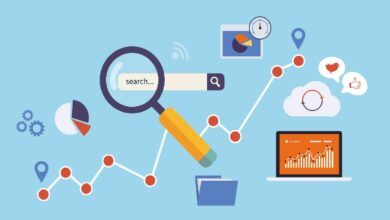The features and capabilities that you will incorporate into your FinTech app must be defined in detail before you can begin development. Having a brilliant idea is not enough. You should also assess the viability of your FinTech application. Choosing the appropriate technological stack for your fintech application is crucial for this.
This tech stack will have a huge impact on the future of your FinTech app. Also, it might assist you in achieving your professional objectives quickly. Because of this, you must exercise caution while choosing the tech stack for your FinTech application. We’ll outline the considerations you should make while selecting the technology stack for your FinTech app in this article.
Fintech: What Is It?
We must first define the concepts and understand what fintech is before discussing how to make a fintech app. The idea is viewed broadly as a group of technology connected to financial transactions and money management.
The term “fintech” actually stands for “financial technology.” Several startups and big, established businesses in the sector are working to cut expenses and find new revenue streams while also enhancing the services they offer. Fintech encompasses a wide range of topics, including blockchain platforms and online banking, but the market for mobile applications is growing the fastest. Developing a fintech app takes relatively little time, and both B2C and B2B customers show a lot of interest in this kind of product, allowing the owner to break even and start making money in a matter of months.
Popular Financial Tech Stacks in 2023
Various organizations use similar technologies, but just a few have the same technology stack for developing FinTech apps. The technological stack for any custom financial software development project will differ depending on its requirements. Due to their versatility, variety, and functionality, a few technologies have recently gained popularity in FinTech.
We will showcase the technologies used by various FinTech app development companies.
Programming Languages
Selecting the appropriate programming language is one of the most crucial considerations in FinTech development. Java, Python, Ruby, and C++ are a few of the major programming languages utilized in the creation of fintech. These languages are well-liked because of their adaptability, scalability, and reliability, which make them suitable for creating sophisticated financial systems.
Databases
Because financial applications produce and store a lot of data, they are a crucial part of the growth of FinTech. PostgreSQL, MongoDB, and MySQL are three popular databases used in FinTech development. These databases offer flexibility and scalability for data processing and storing, guaranteeing that applications can handle high transaction volumes.
Cloud Computing
Because of its adaptability and scalability, cloud computing has gained popularity in FinTech development. Finance organizations have access to robust computing resources through cloud platforms like Amazon Web Services (AWS) and Microsoft Azure, allowing them to scale their applications rapidly and effectively in response to rising demand.
Blockchain
Blockchain technology is increasingly being used in the FinTech sector, particularly in the context of cryptocurrencies and online payments. Blockchain technology offers decentralization, security, and transparency, making it ideal for creating reliable financial applications.
APIs
APIs (Application Programming Interfaces) play an important part in FinTech development, allowing enterprises to interface their apps with external systems and data sources with the assistance of FinTech development companies such as Alty or another reputable service provider in this area. Payment gateways, financial data providers, and identity verification services are examples of APIs commonly used in FinTech development.
AI and Machine Learning
In the development of FinTech, machine learning (ML) and artificial intelligence (AI) are also gaining popularity, particularly in fields like fraud detection, risk management, and credit scoring. Companies are now able to make data-driven decisions and automate procedures thanks to ML and AI algorithms’ ability to analyze vast volumes of data and generate precise predictions.
Conclusion
After revolutionizing how we conduct transactions and conduct financial planning, fintech apps have become essential elements of both personal and commercial finances. Although there are endless development prospects with fintech apps, your ability to seize this chance mostly depends on your execution and choice of technology stacks.



